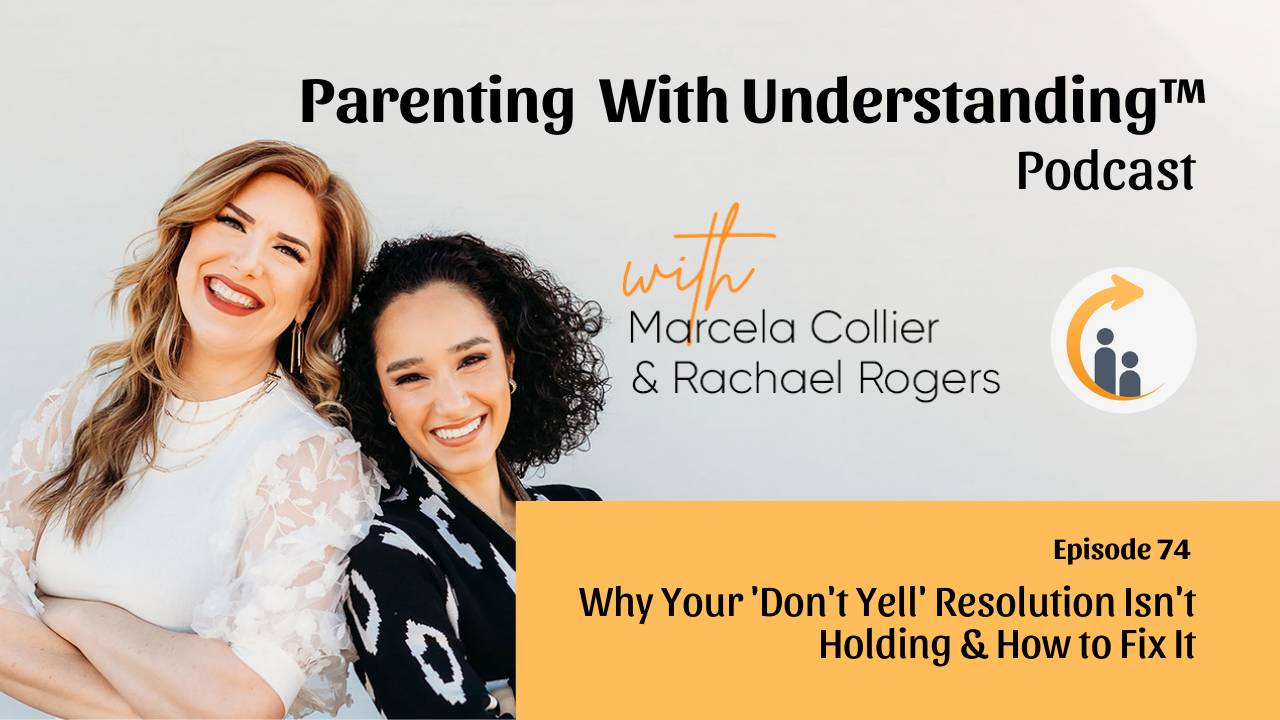Epi #74. Why Your 'Don't Yell' Resolution Isn't Holding & How to Fix It
Aug 22, 2023
You've probably picked up a book or two, scrolled through countless social media posts, or even made that new year's resolution: "I won't yell at my kids."
Yet, despite your best intentions, you find yourself raising your voice again and again. If you're wondering why your "don't yell" resolution isn't sticking and are eager to embrace gentle parenting truly, this article is for you.
Why Do We Yell?
Yelling is more than just a reaction; it often manifests deeper underlying emotions.
As parents, we manage not only our children's feelings but also our childhood wounds, stresses, and triggers.
Over time, these unresolved emotions can make us feel overwhelmed, leading us to revert to our old ways - in this case, yelling.
Understanding the Cycle of Yelling
- 1. Trigger: An event or behavior that initiates feeling overwhelmed or frustrated.
- 2. Reaction: The immediate emotional response to the trigger, often intense and disproportionate.
- 3. Guilt: Many parents feel remorse or guilt about their reactions after yelling.
- 4. Resolution: The commitment to "not yell again" without addressing the root cause.
- 5. Repeat: The cycle continues without addressing the true causes of yelling.
Breaking the Cycle: It’s More Than Just Willpower
Relying on sheer willpower to stop yelling is akin to putting a band-aid on a deep wound. It might cover the problem temporarily, but without proper care, the issue persists.
- 1. Self-awareness: Begin by understanding your triggers. Is it a lack of sleep? Work stress? Or maybe past traumas? Identifying these triggers is the first step in managing your reactions.
- 2. Emotion Regulation: Learn techniques to calm yourself during heated moments. This can range from deep breathing exercises to taking a short walk.
- 3. Communication: Instead of yelling, express your feelings and needs clearly. "I feel overwhelmed when the house is messy.
Can we work together to clean up?" is far more productive than shouting.
- 4. Seek Support: Whether through parenting coaching or community support, it’s important to find our circle of people and professionals to help get unstuck in our parenting.
Empathy Over Authority
Switch your mindset from being in control to becoming an empathetic guide. Understand that children, just like adults, have their own set of emotions, triggers, and stresses.
By practicing empathy, we can create a more harmonious environment where emotions are acknowledged and validated.
Consistency is Key
As with any new skill or habit, consistency is crucial.
While there may be times when you revert to old behaviors, it's essential to remember that progress is not linear.
Celebrate the victories, no matter how small, and understand that every day is a new opportunity to foster a deeper, more understanding relationship with your children.
In Conclusion
Breaking the yelling cycle is more than just resolving.
It's about diving deep, understanding your emotions, triggers, and adopting a proactive approach toward gentle parenting.
Remember, every interaction with your child is an opportunity for connection, understanding, and growth.
If you're seeking more guidance on this journey, tune into our latest episode of http://hicparenting.com/podcast.
If you need personalized support to get the customized plan and support you need, then you can CLICK HERE to apply to work directly with one of our HIC Parenting coaches.



